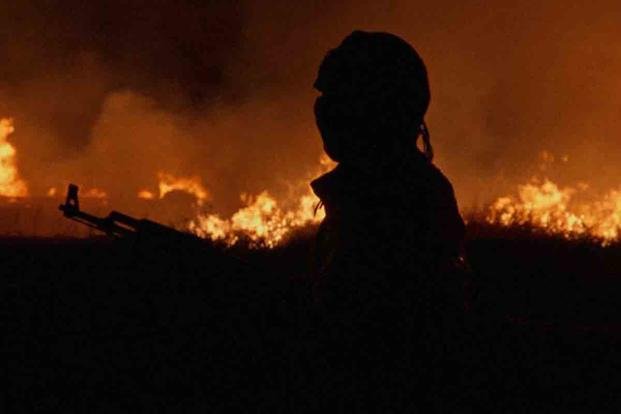In May 2015, the Islamic State was at the height of its power, having captured roughly half of Syria and nearly a third of Iraq. While the Iraqi Army crumbled and the Syrians continued to fight a brutal civil war, the most capable opposition came from a combined force of Iraqi and Syrian Kurdish militias, along with a growing group of Arab allies, that came to be known as the Syrian Democratic Forces, or SDF.
Within two years, the SDF-led ground forces, with the help of Western air power, pushed ISIS fighters back into Syria, retook swathes of ISIS-held territory and captured the Islamic State capital of Raqqa. The fall of the ISIS capital didn't end the fighting but it severely weakened the power and appeal of the Islamic State.
As the fighting raged, SDF forces captured a number of ISIS prisoners in Syria. Canadian filmmaker Zaynê Akyol, who was born to Kurdish parents, was there to interview some of those jihadist prisoners as the battle for Syrian Kurdistan raged on. Asking them about their motivations and how far they went to establish their caliphate, her documentary "Rojek" tells the story of the rise and fall of the Islamic State through their answers.
Akyol's first film, 2016's "Gulîstan, Land of Roses," followed women who joined Kurdish militias before the ISIS conflict and documented their lives as guerrillas. "Rojek" is a kind of sequel to the first film, a look back at the chronology of ISIS through the eyes of jihadists and their wives. Where her first film tells the story that supports her personal beliefs, the second is an attempt to understand what she calls "the enemy of the world."
"I speak with them to understand where they come from, the reasons behind their acts and the mechanisms in place within ISIS," Akyol told Women And Hollywood. "I establish a dialogue with those who had a hand in the creation of the Islamic State. With prison cells and prison camps as a backdrop, it delves into the lives of these people who came from all around the world, driven by their desire to create a society based on an ultra-fundamentalist view of Islam."
For four months, Akyol traveled Syrian Kurdistan visiting prisons and interviewing 30 jihadist fighters and 20 wives. All 50 were captured after the fall of the Islamic State and came from backgrounds that transcend languages, borders and culture. Some are repentant, others don't believe they need to apologize; all claim they were fighting for their beliefs, however corrupt they might be.
Contrasting the interviews and their personal stories are the real images of what the Islamic State rule has done to the Syrian countryside, pulling no punches in showing the devastation caused to the people and the landscape after years of intense fighting. Bombed-out cities, burning fields and the markers of refugees and civilian casualties populate the scenery as Akyol reminds us that people still struggle to live and work in a region that hasn't really seen the end of conflict.
"Rojek" was released in 2022 and was selected as Canada's submission for the 2023 Academy Award best international feature film category. It has not yet been released in theaters.
-- Blake Stilwell can be reached at blake.stilwell@military.com. He can also be found on Facebook, X or on LinkedIn.
Keep Up With the Best in Military Entertainment
Whether you're looking for news and entertainment, thinking of joining the military or keeping up with military life and benefits, Military.com has you covered. Subscribe to the Military.com newsletter to have military news, updates and resources delivered straight to your inbox.

















